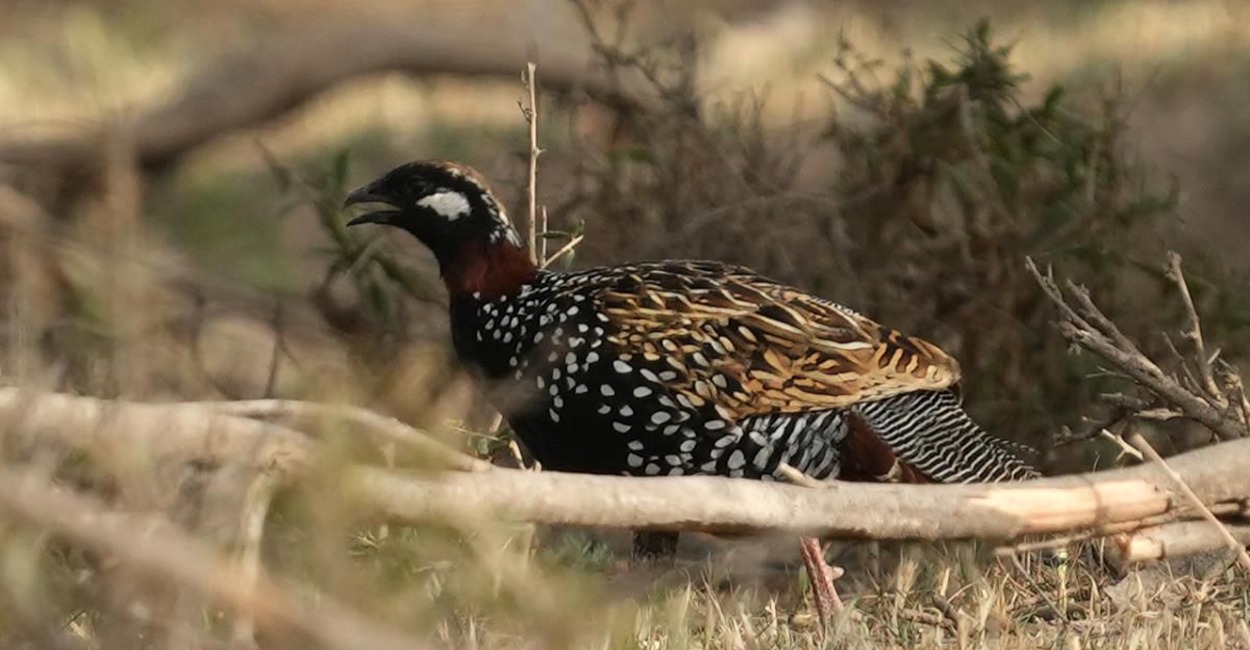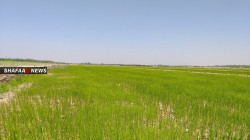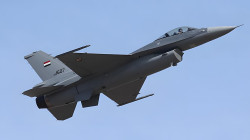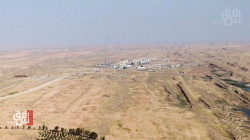Preserving the melody: Diyala's Black Francolins and the urgency of conservation

Shafaq News/ In the heart of Diyala, in the central-eastern part of Iraq, where the intertwining melodies of nature's symphony captivate both hunters and enthusiasts alike, a seasonal interlude has begun.
The Diyala Agriculture Directorate recently announced a ban on Black Francolin hunting, signaling the onset of their breeding season. This pause in pursuit comes amid concerns voiced by environmental experts over a noticeable decline in the vibrant plumage of Black Francolins gracing the governorate's landscapes.
Muhammad al-Mandalawi, the spokesperson for the Diyala Agriculture Directorate, told Shafaq News Agency that the Black Francolin, renowned for its distinctively flavorful meat, attracts considerable interest from hunters. Hence, a dedicated hunting season is established.
"The Black Francolin hunting season in Diyala has ceased this week…hunting Black Francolin and Pin-tailed sandgrouse is permitted only from October to February, and any deviation from these timelines is considered a legal violation."
Al-Mandalawi urged strict adherence to governmental and environmental directives during this period to support reproduction and safeguard the population of this distinctive bird.
The black Francolin (Francolinus Francolinus ) is a gamebird in the pheasant family Phasianidae of the order Galliformes, gallinaceous birds. It was formerly known as the black partridge.
The black Francolin ranges around 33 to 36 cm and weighs about 453 g (16 oz). It is a resident breeder in Iraq, but over-hunting has reduced its distribution and numbers.
Moamen Hassan, a hunter, highlighted to Shafaq News Agency the black Francolin's "delectable taste and aesthetic appeal," contributing to its popularity. However, he expressed concern about a significant decline in its numbers, attributing it to the lack of a hunting culture and non-compliance with schedules, particularly among teenagers engaging in recreational shooting.
"We need proactive measures to prevent poaching, restricting hunting to licensed enthusiasts who adhere to specified timelines." He said.
Meanwhile, environmental expert Youssef Saadi acknowledged a 20-30% decline in Black Francolin numbers in recent years, citing excessive hunting as the primary cause, especially after the region experienced security stability.
"It is necessary to establish standards for hunting, providing environmental training to hunters, and regulating the sale of hunting weapons to preserve ecological diversity and prevent the extinction of various bird and animal species." He pointed out.
As the curtain falls on Diyala's black Francolin hunting season, a lingering melody of concern resonates among environmentalists, hunters, and authorities alike.
The delicate balance between savoring the delectable taste and ensuring the continued presence in Diyala's natural orchestra demands attention.
The Diyala Agriculture Directorate's strategic ban highlighted the necessity for stringent adherence to hunting regulations, emphasizing the collective responsibility in safeguarding the region's ecological diversity.
The call to action is clear at this juncture: to foster a conscientious and meticulous regard for conservation values, which represents a testament to the unwavering dedication to the principles of environmental preservation.





